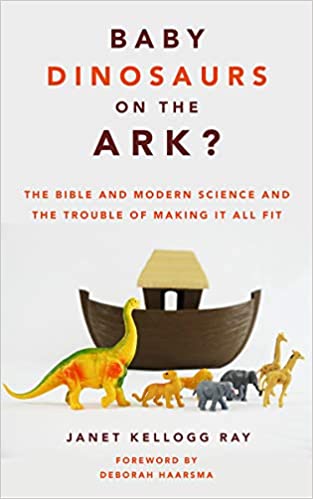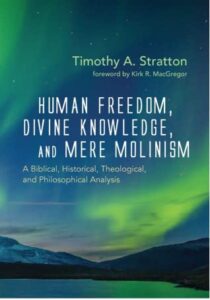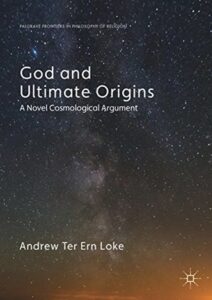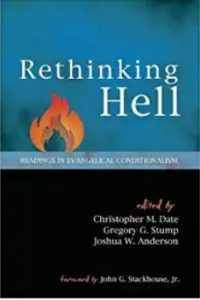Audio accessibility for this blog post is powered by Microsoft Text-to-Speech technology. These recordings are provided for personal, non-commercial educational use only.
“Baby Dinosaurs On The Ark?: The Bible and Modern Science And The Trouble Of Making It All Fit” is a good book on science and faith (although more so on the former than the latter). The book’s chapters on the scientific evidence for an old Earth and for common ancestry is extremely accessible to anyone wanting to know what the evidence for an old Earth and common ancestry is, but who don’t want a lot of technical scientific jargon. Other books have explained the evidence on a layperson’s level as well, such as Francis Collins’ “The Language Of God” and Aaron Yilmaz’ book “Deliver Us From Evolution?” which was, by the way, the book that convinced me that the theory of evolution was true. But “Baby Dinosaurs On The Ark?” is SO accessible, I would be comfortable giving it to an elementary school student.
I also liked how she argued for evolution. In chapters 8, 9, and 10 in which she discusses the evidence for the evolution, she presents the scientific facts and asks whether this is what we would expect if evolution were true or is this what we would expect if God miraculously created creatures through independent ex nihilo miracles.
The best Scientific theories make the best predictions. If scientific theory A has all of its predictions come true, but Scientific Theory B has to explain away the evidence (as special creationists and ID proponents so often do), then that is a sign that Theory A is more probably true than theory B.
She asks “If evolution were true, what would we expect to see? We would expect to see X, and that is exactly what we find”.
What I would say this book lacks is vigorous discussion on evolution’s relationship with Christian theology. There is one measly chapter at the very end “Chapter 12: Leaving Creationism Without Leaving God” which talks about this to a certain extent, but not very much. How do we interpret the Adam and Eve story in Genesis 2? How should we read Genesis 1? If, as Ray argues, there could not be one single couple from whom all of humanity descends, how do we deal with verses which seem to indicate just that (e.g Acts 17:26). Ray fortunately refers the reader to other resources to look into these questions (such as the works of Peter Enns and John Walton), but she doesn’t talk about it at all herself. It would have been nice to have more of the faith part in a book about science and faith. As it is, it seems more like a Christian friendly popular level book on the science of evolution, which isn’t a bad thing, but that’s not how the book was advertised.
People wanting to know how to reconcile their Christian faith with evolution won’t find very many answers here, unfortunately. That isn’t to say you won’t find ANY answers, but this book really focuses more on the scientific problems with Young Earth Creationism and the scientific evidence in favor of an old Earth and evolution than it does with the conversation between Christian Theology and Evolution.
I think it’s a nice starter, but you’ll have to go beyond Ray’s book to be completely satisfied. Such as John Walton’s “The Lost World Of Genesis One”, John Walton’s “The Lost World Of Adam and Eve”, and maybe Francis Collins’ “The Language Of God”.
Don’t get me wrong. I think this is a good book, and if there’s an audio version of Audible (which I hope there will be), I will get that. I plan to return to this book again because of how plain and simple the scientific explanations of the paleontological, genetic, fossil, etc. evidence is. However, like I said, it would have been better to have more theology and how it relates to all this science.
But, then, this is a problem I see across all Theistic Evolution books I’ve read. They’re either too heavy on the science or too heavy on the theology. It makes me want to write a book on my own to fill this need, except unfortunately I don’t feel like I’m well read enough to talk about the science even from a layperson’s perspective. I’d need some heavy duty studying before I produced such a book. Either that, or I’d have to partner with a Christian friend who has a heavy scientific education. I know a few, but I’m not sure how to handle split copyright and split royalties, and so on. Plus, they may not be totally on board with all of the things I would write in the biblical and theological departments.
The problem I consistently find with TE books is that they’re either heavy on The Bible or heavy on the science, but to get a well rounded defense of Theistic Evolution, you need to read more than one book. And when people ask me what book I would recommend them read, it’s always a minimum of 3 books.
The only book I have read that doesn’t have this problem is BioLogos’ “Understanding Scientific Theories of Origins: Cosmology, Geology, and Biology in Christian Perspective” By John Walton, Stephen Moshier, Richard Bishop, Larry Funk, and Raymond Lewis. However, it’s a whopping $68.00 on Kindle and $76.00 in hard copy! Not many people are going to want to spend that amount of money.
So the issue I find with Janet Kellogg Ray’s book isn’t really unique to hers, although this probably the BIGGEST science-to-faith disproportionate ratio I’ve come across yet.
Again, I think this is a good book. I liked it. I want you to get it. If there’s an audio version, I’ll get it and listen along whenever I pick this book up again. But I’m just saying that unless you already have read books by author like John Walton or Peter Enns, or Joshua Swamidass, you’ll put the book down still not knowing what to do with Adam, or the days of Genesis, or how God could have purpose in a “random” process.
My Rating Of This Book
Rated 3.1 out of 5
Share this:
- Share on Facebook (Opens in new window) Facebook
- Share on X (Opens in new window) X
- Print (Opens in new window) Print
- Email a link to a friend (Opens in new window) Email
- Share on Pinterest (Opens in new window) Pinterest
- Share on Reddit (Opens in new window) Reddit
- Share on LinkedIn (Opens in new window) LinkedIn
- Share on Tumblr (Opens in new window) Tumblr
Discover more from Cerebral Faith
Subscribe to get the latest posts sent to your email.





“It’s often unwise to judge a book by its title, yet this is the rare case when you should do just this. is an intriguing title completely backed up with an even more intriguing book. Janet Kellogg Ray blends storytelling, biology, and biblical reflection to offer a very helpful, engaging, and important book. All pastors, parents, and young adults will find this book an essential resource in understanding faith and science and a way to faithfully embrace them both.” — Andrew Root author of